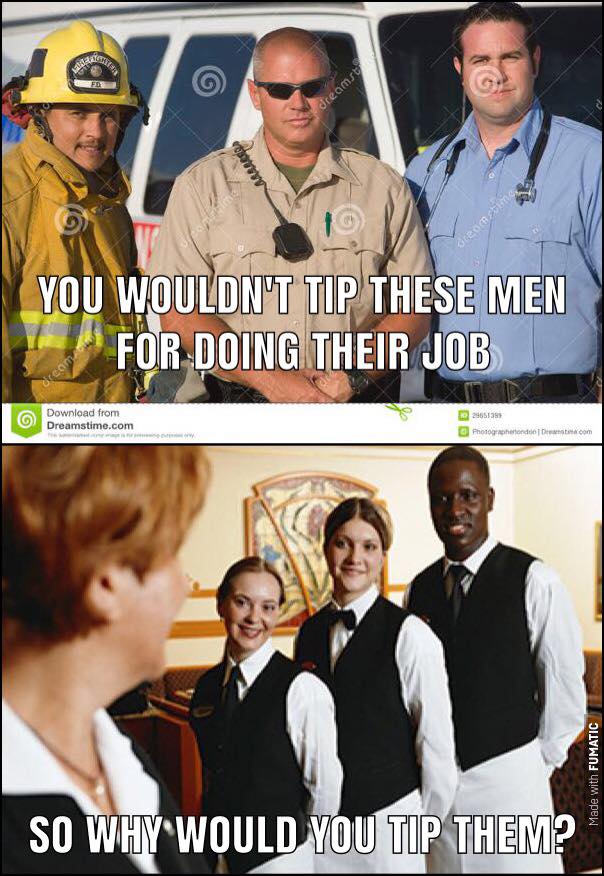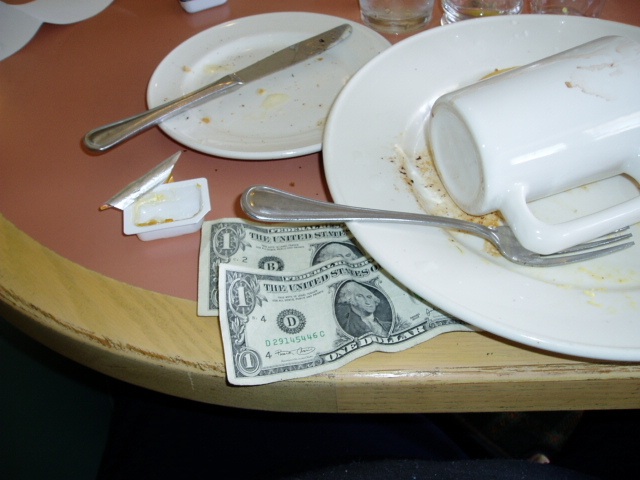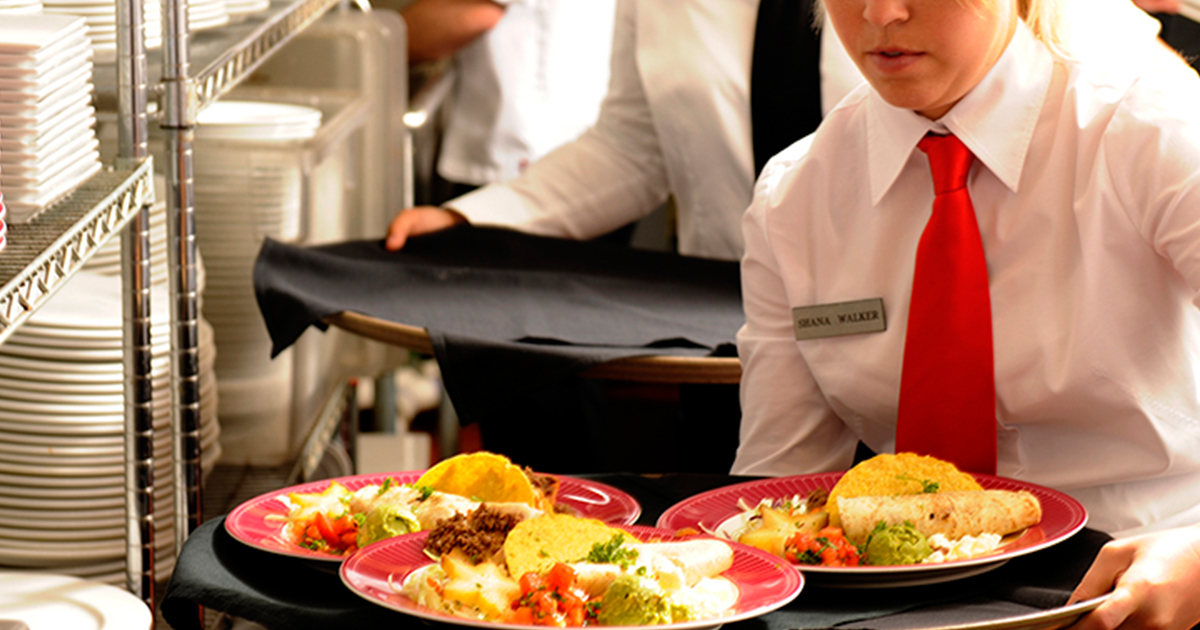What This Fake Meme Gets Wrong About Tipping

By:
Workers in the service industry have mixed feelings about tipped wages—that is, being paid a low hourly wage and depending on tips for the bulk of one's income. But on the other side of the table, there are customers who still question why they have to tip at all.
.jpg?auto=format&crop=faces&fit=crop&q=60&w=736&ixlib=js-1.1.0) Flickr - flickr.com
Flickr - flickr.com
One Facebook page dedicated to apparently satirical anti-tipping content shared this meme last week, which poses the question: Why should waiters be entitled to tips when we don't afford the same gratuity to emergency responders?
It's an intentionally absurd comparison, but that hasn't stopped people who oppose tipping from sharing the hell out of it—or local media organizations from reporting on the Facebook page.
 Facebook - facebook.com
Facebook - facebook.com
For those who bought into the meme, the answer to its question is simple: Most workers in the U.S. restaurant business rely on tips for the bulk of their income. The minimum wage for tipped wage employees varies from state to state, but the federal minimum tipped wage is $2.13 per hour. Employers are required to compensate workers who don't get enough tips to earn a $7.25 minimum wage in a given week, but that doesn't always happen.
Police, firefighters, and paramedics do not depend on tipped wages. In 2015, police officers earned $29 per hour, firefighters earned $23 per hour, and paramedics earned $15 per hour. There's a case to be made that individuals who put their lives on the line and save lives should be paid more, but that's a separate issue.
The fake meme does raise an important point, though.
 Wikimedia - wikimedia.org
Wikimedia - wikimedia.org
Tipping is a distinctly American practice that places a voluntary responsibility on customers' shoulders. In some cases, that means tipped wage employees are at the mercy of the customer's patronage, which has been shown to be influenced by the employee's race or attractiveness, for example.
There are certainly businesses, typically on the high-end of the spectrum, where service workers make more than the minimum wage thanks to the generosity of their customers. But as FiveThirtyEight pointed out, at "diners and other less-expensive establishments, tips can be much lower."
 Flickr - flic.kr
Flickr - flic.kr
That disparity could explain why there are disagreements over tipped wages among those who depend on tips. The reality is tipped wages can mean going home with a pocket full of cash from a generous crowd, or it can mean waiting for employers to compensate you after a series of fruitless shifts.
Comparing tipping with respect to waiters and emergency responders is comparing apples with oranges. For one, tax dollars do go toward emergency services, which means you do contribute to the salaries of those putting out fires, arresting criminals, and resuscitating patients.
Does the fact that you aren't asked to tip your paramedic 10 percent of the cost of your ambulance ride mean you shouldn't tip you waiter, though? No, and that's the point of the joke. But perhaps the question we should really be asking is why there's a system where certain employees' salaries are contingent on the generosity of customers in the first place.
